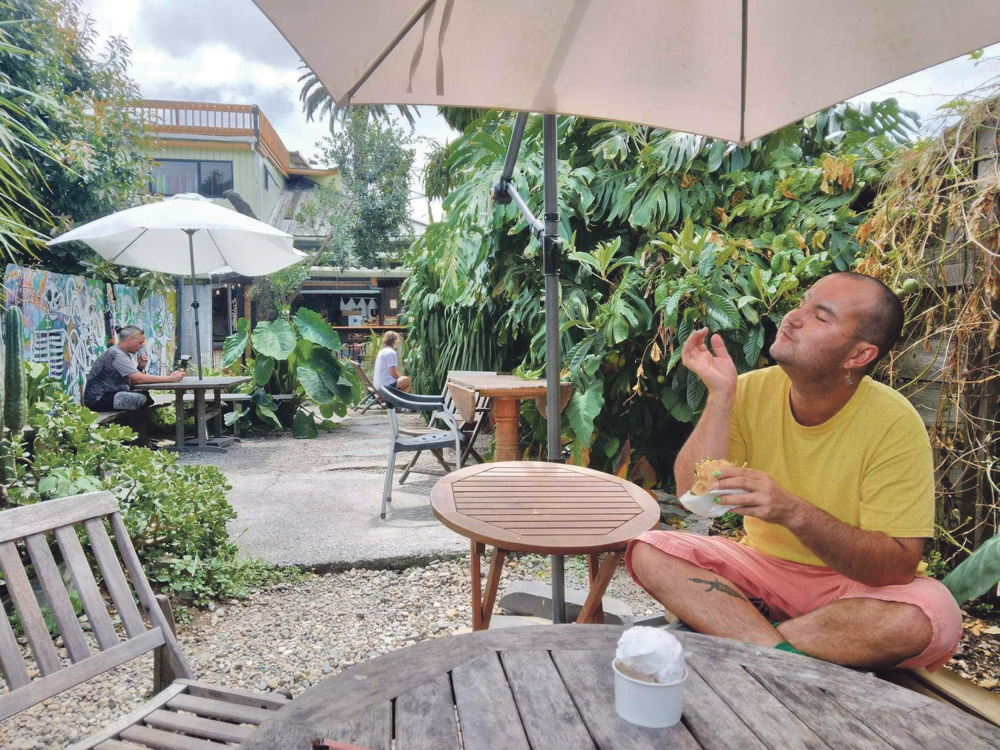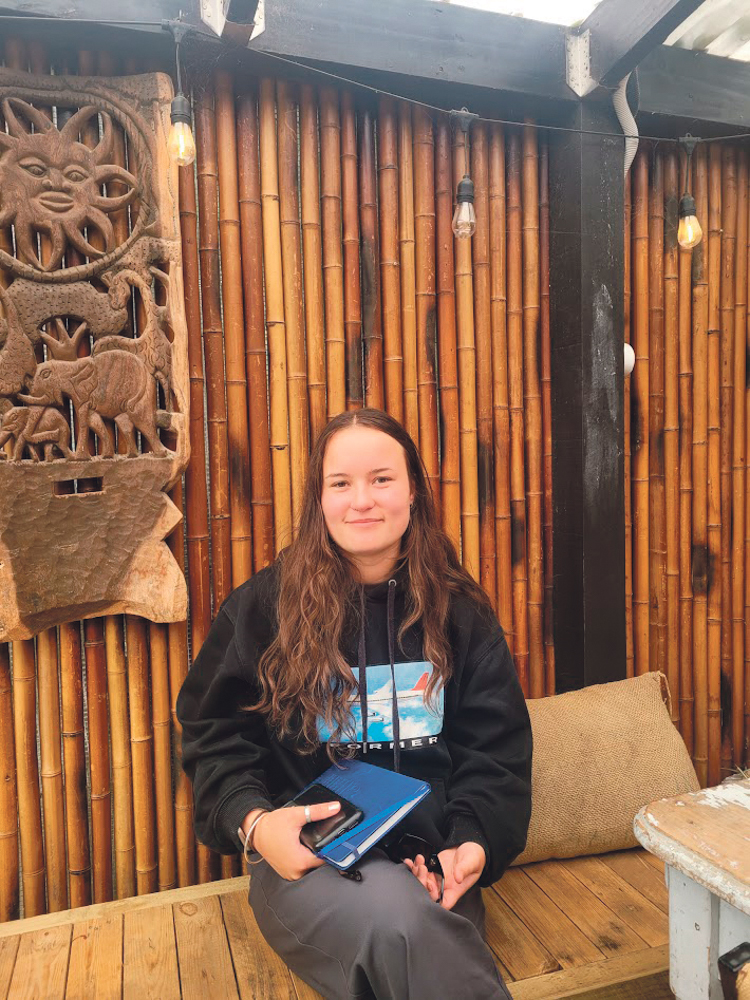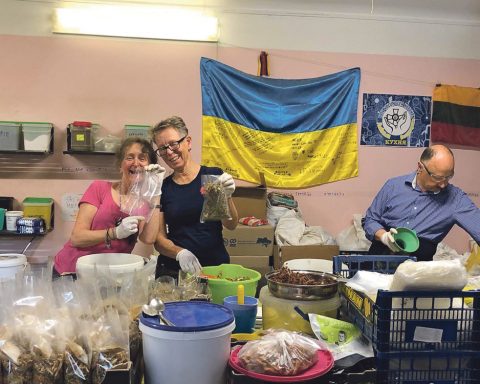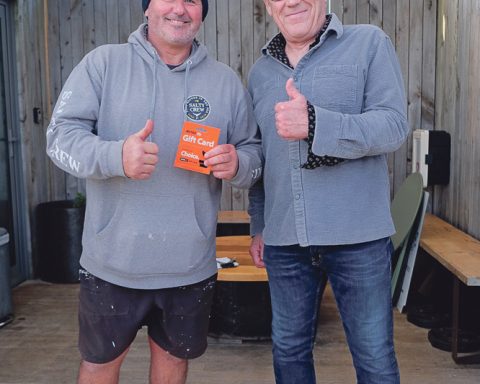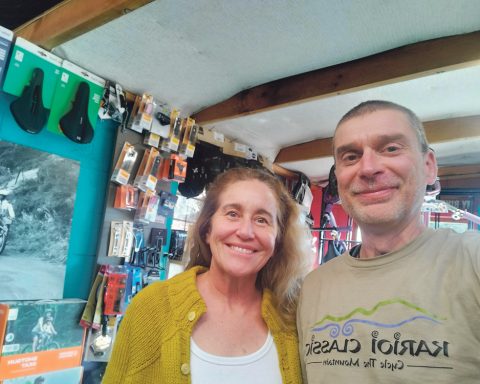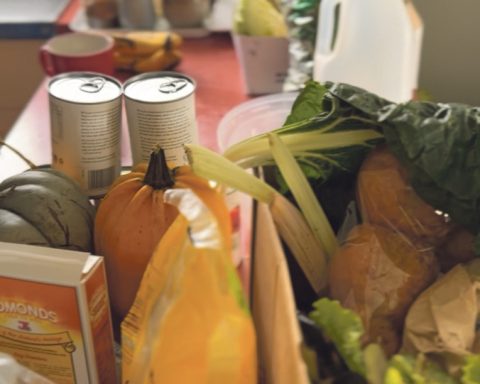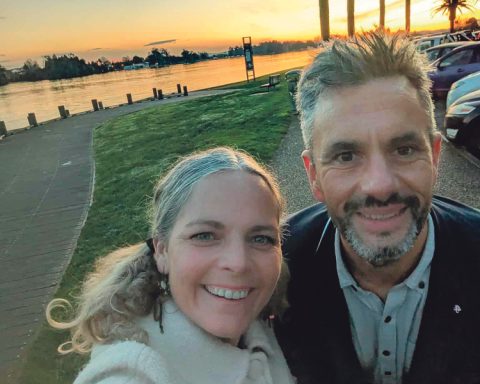Conor McCabe is a singer, a DJ, a sandwich shop owner, a star about town, and also my best friend of thirty years. This month we sat down to talk about his mental health journey, or as he kept referring to it, his exposé.
What is your relationship like with your mental health? Is it something that you think about every day?
I definitely used to think about it every day but now not so much. I’ve found quite a sweet balance. I can just go forth and conquer! I got there by trusting myself and my intuition and the important voices around me. I do check in when I experience big points of exhaustion. That’s definitely when I’m like “OK, how are we going?” But at those points I also have a sense of fulfilment, so it never really feels like burning the candle at both ends like it used to. It’s more like self-affirmation. “You’re doing good babe!”
What has your relationship been like with your mental health in the past?
I have definitely had an interesting relationship with it in the past. There was a lot more going on to tip the scales. I can be prone to low lows and high highs, but not so much anymore. I was operating in a vulnerable space of unknowns; not being good enough, not being chosen, being pulled this way and that. I kind of kept myself in that space, thinking it would make for good art, but it wasn’t necessarily healthy. I realised that when you go into situations fearlessly, you have more to work with artistically. I felt like I needed to allow myself every opportunity for real emotions to create the best work I could.
Why did you transition out of the music world?
I was over being so vulnerable. I think initially the vulnerability was really celebrated and is what got me to where I ended up being. But then the more people that get involved, the more ideas they have for you and they are not always the ideas that you have for yourself. Sometimes I would write what I thought was my best work and then not get much of a response from the people that were working for me. It just wasn’t right for me at the time. I wasn’t around the right people. In lots of ways not doing music has helped my mental health. Writing about personal things and then having to sing them repeatedly and relive them has always been hard. Or less that it’s hard and more that it’s hard to let go. When you’re trying to be in a creative flow it’s easy to put yourself into positions where you find inspiration but those places are sometimes not very good for you. The music industry can be draining and confusing.
How has moving home to Raglan impacted your mental health?
Coming home was a complete change of pace and then, after time, a complete change of pace again. That was all about my mind frame and understanding my own potential and the potential of the place that I’m in. It was lots of letting go of my old life and figuring out where I can fit in here, or where I can stand out. I made myself surrender to the lifestyle. Coming home can feel like giving up. But, I think there’s giving up and then there’s giving in to what was always meant to be. When you’re always pushing forward, going home can feel like a step backwards but it can also be a step inwards. Home is a purposeful place to put my energy rather than in the city where a lot of your efforts can just float away into nothing. It’s reciprocal here. It’s lasting and it’s historical. You could call it a smaller life but it’s way fuller, busier and bigger than any of my other lives.
How did growing up in a small town and being queer impact your mental health?
I always knew I was a bit different but I didn’t really understand how. It was confusing in lots of ways but I always had so many other things going on so it’s never been the main thing about me. Sure, I probably was a little bullied, but I was never really that bully-able! I’ve always been fab and felt understood by many so those who didn’t get it didn’t really faze me. There weren’t many examples of queer adults around me when I was growing up so it was hard to see what my future could look like. In ways this was good, because I really got to do it my way.
Do you feel a responsibility to the younger queer people in this community now that you’re back?
Yes, I feel that it’s important for me to just do me and be seen. I think being authentic is what it is all about. It doesn’t necessarily have to be queer expression, just a genuine expression of who you are. I think for me it’s important to just be however I feel and to show that that is all good.
When you’ve been at your lowest point what is it that’s gotten you through?
Talking to my close people. Taking a bit of a step back and doing what I know makes me feel better. That’s lots of things; just lying down sometimes but also stopping lying down! I just try to feel what I need. I go dancing. I listen to music. I try to laugh a lot. I will wallow for a minute, then stop wallowing. Sometimes you need to be a depresso bitch for a second; that’s required some of the time. I need alone time but I have to be wary not to take too much time to myself.
You have a big personality and that is how a lot of people know you. I know you to have a much more serious side as well. How do you consolidate those two sides of yourself?
I think a lot of it is being well thought out and doing the work so that I have the means to be free in the moment. I am really fun but I am quite serious about fun. The conditions need to be just right and a lot of what I’ve learned in my life helps me create these spaces where I can be myself and allow others to do the same. I love that people feel comfortable to be big with me. I think it makes for a more vibrant community. The flip side of that is me lying on my bed binge watching Survivor, so that I too can survive!
What are some of the tools in your toolbox?
First would be a hammer to hammer it all home. To bang it out and just keep going. Is the wrench the twisty one? Yup, there’s a wrench in my toolbox. Twisting and flipping the narrative. Sometimes you just need to reframe things and put a new door on the mind-frame, or maybe it needs to be a window! Also, in the toolbox are nails, so you can nail it. There’s also a laser level in the toolbox, for balance. You don’t wanna be all wonky and off centre. You need to hang that art up nice and level and straight so that everyone can appreciate its true beauty.
